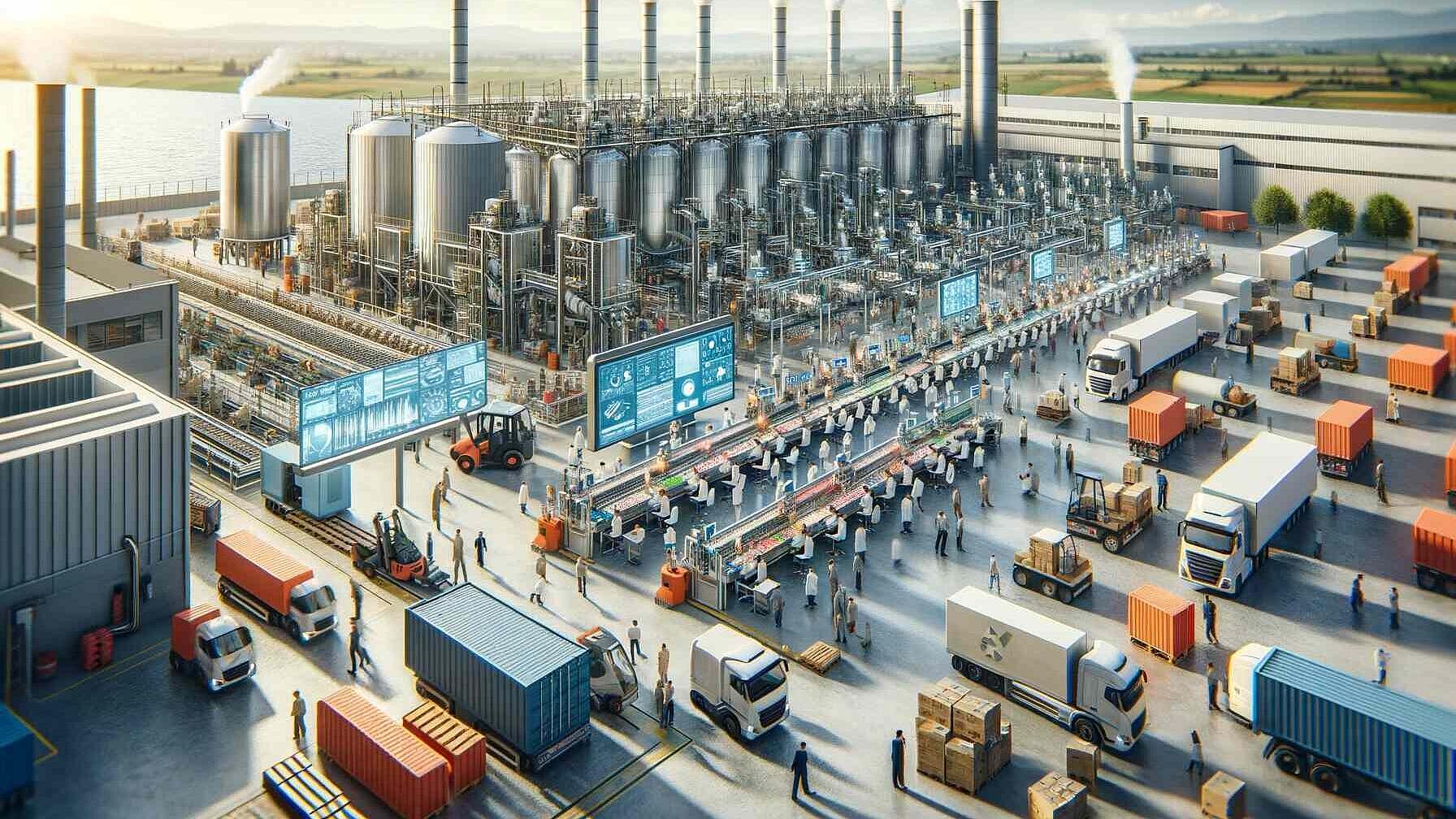 Energy Efficiency
Energy EfficiencyThe Core of Europe's Economy: A Deep Dive into the EU Food and Drink Industry
Summary
The EU food and drink industry is the largest manufacturing sector in the union, boasting a turnover of €1,192 billion and leading in capital investments with €40.1 billion in 2016. The industry is a robust contributor to the EU's economy, characterized by resilience and continued growth. It employs 4.72 million individuals, making it the top manufacturing employer, although labor productivity is noted to be lower than the manufacturing average, indicating room for efficiency enhancements.
The sector adds significant value, accounting for 2.1% of the EU's gross value added and has experienced growth in this area, reversing trends where value addition was outpaced by input costs. Technological advancements and digitalization are being integrated into the industry, contributing to production improvements, new product development, and employment growth, with evidence suggesting that the uptake of digital technologies correlates positively with job creation.
Sustainability is a focal point for the industry as it aims to align with the United Nations Sustainable Development Goals. Moreover, the industry is a key player in international trade, with a positive trade balance of €36 billion, underscoring its status as both a significant exporter and importer on the global stage. The EU's position in global food and drink markets reinforces its impact on international trade dynamics.
Open full article
The Core of Europe's Economy: A Deep Dive into the EU Food and Drink Industry
An Economic Powerhouse
The EU food and drink industry is not only the largest manufacturing sector in terms of turnover, but also a significant contributor to the EU's economy. With a turnover of €1,192 billion, it holds a major share of the EU's manufacturing output and is the leading sector in capital spending, with €40.1 billion invested in 2016 alone. This sector continues to show resilience and robust growth, reflecting its critical role in the European economic landscape.
Employment and Productivity
Employment within this sector is equally impressive, with 4.72 million people engaged, making it the top manufacturing employer across the EU. However, it is noted that labor productivity in the food and drink industry is generally lower than the overall manufacturing sector, suggesting potential areas for efficiency improvements.
Value Added Growth
Value addition in the food and drink industry is a key area of interest, particularly as it accounts for 2.1% of the EU’s gross value added. Over the last decade, the growth of value added has resumed after being previously outpaced by input costs, indicating a favorable shift towards more profitable operations within the industry.
Digitalisation and Technological Advances
Digital technologies are increasingly being integrated into the food and drink sector, with significant investments directed towards improving production processes and developing new products. The adoption of digital technologies has led to tangible results such as employment growth, particularly among companies that have embraced these advancements.
Sustainable Practices and Global Trade
Sustainability remains a central theme, with the sector playing a pivotal role in achieving the United Nations Sustainable Development Goals. The industry is also a net exporter with a positive trade balance of €36 billion, highlighting its significant role in global food and drink markets. The EU stands as a leading exporter and importer on the global stage, reinforcing its influence in international trade dynamics.
To read the full document, please check here.
To learn more about why this is important for the EENOVA project, please check here.



